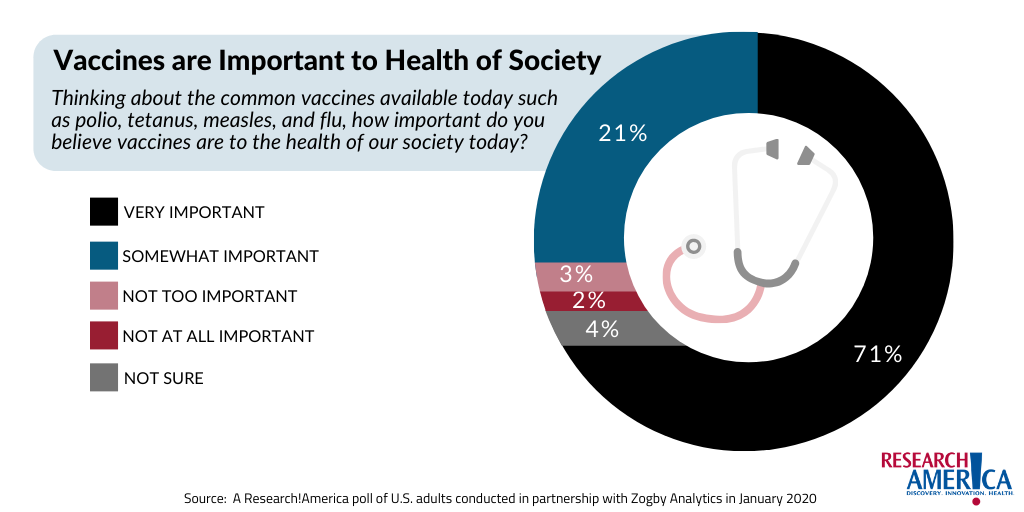COVID-19 Is A Call to Action to Bolster Vaccine Confidence

As part of ongoing work to keep a finger of the pulse of public opinion, Research!America has commissioned numerous questions over the years to determine what Americans know about vaccines and immunization as well as how they feel about vaccines and vaccine safety. The findings reveal a decidedly negative shift over the last decade in Americans’ attitudes towards vaccines. While this public opinion research predates the novel coronavirus pandemic, it certainly suggests that deploying effective strategies to improve the public’s confidence in vaccines must occur now and not wait until a COVID-19 vaccine is developed.
Our national survey commissioned in January 2020 shows that respondents believe currently available vaccines are important to the health of our society. In that same vein, 85% of respondents are in favor of increased federal spending on research to improve existing vaccines and to develop new vaccines.





Our January 2020 survey also found declines in respondents’ perception of benefit from advances in vaccine development. 59% of Americans strongly believe that they have benefited from the development of vaccines over the last 50 years, but this marks a significant 16% decrease from 2008.

Decreased perception of the benefit of vaccines may be contributing to the decline in parental support for vaccination and immunization for their children. When asked how important it is for parents to have their children vaccinated, 69% of respondents said ‘very important,’ a 13% decline compared to 82% in 2008.

However, according to our May 2018 survey, many agree (61%) that when parents decide not to vaccinate, it puts their children and their communities at risk. This showed a 10 % increase from 2008.

Since our founding more than 30 years ago, a key strategy tool in Research!America’s advocacy for science and medical research has been influencing public opinion. As President Abraham Lincoln said, “…public sentiment is everything. With public sentiment, nothing can fail; without it nothing can succeed.” This series of blog posts explores findings and trends from our national survey data.




